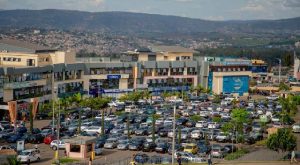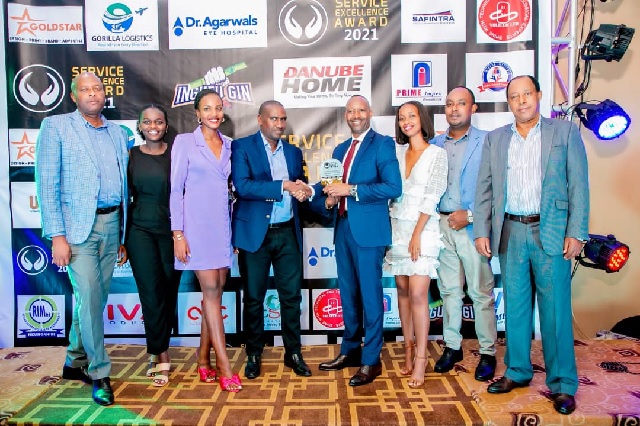By Steven Nsamaza;
True, Rwanda like many African economies has walked a steep journey since the novel Coronavirus was declared in the region mid-March 2020. To counter the spread of the disease the country was left with one option of imposing stringent restrictions including lockdowns after lockdowns to save lives of her people. Thus, the economy that has experienced nearly a two-year blackout calls for resilient efforts, preparation and regional partnerships to induce sustainable economic recovery.
Rwanda recorded a negative economic growth in 2020 down from 9.5% in 2019 largely due to measures against the spread of COVID-19. Moreover the East African nation had maintained an average economic growth of 8.0% for the last two decades, statistics in the Ministry of Finance and Economic Planning indicates.
“The total public debt has increased due to an increase in health-related spending and a decline in tax revenues,” observed Rwanda’s Premier, Edouard Ngirente recently.
An overview of Rwanda’s bumpy journey as it systematically gathered nuts to remove operational bottlenecks to slow down the spread and lessen impact of the pandemic gives an insight into whether Rwanda will weather through the tough economic times sooner or later.
It’s indisputable the COVID-19 pandemic is not only a key health crisis that has strained health systems globally but also caused far reaching ramifications on economies, most of them now in shreds, and Rwanda was not spared. The common knowledge is that the pandemic proved that all economies were vulnerable to emergency situations.
As economies, Rwanda included, looked around for measures to slow down and/or contain the spread of the novel Coronavirus both medium and long term consequences could not be eluded by strong and developing economies.

However, a close look at Rwanda’s economy vis-à-vis the economies in the EAC region and those of Africa at large shows that Rwanda may enjoy leverage as far as economic recovery is concerned. Rwanda faced criticism for her stringent measures in place to control and contain the spread of the pandemic that largely helped the East African country to prevent a third wave of the pandemic.
At a Continent level Dr. John Nkengasong, the Director of the Africa CDC said October 28th, 2021 at a weekly news COVID-19 media conference that seven African countries including Algeria, Egypt, Somalia, Kenya, Mauritius, Benin and Tunisia had experienced the fourth wave.
Meanwhile, a close analysis of the downward trend of the COVID-19 cases in Rwanda means several things but first and foremost the country’s stringent measures have finally paid off.
Rwanda had been tested 3, 419,396 people and 3,188,890 fully vaccinated as of November 26th, 2021 according to Rwanda Biomedical Centre (RBC). Rwanda will meet her target to have vaccinated at least 60% of Rwandans by 2022.
Globally, there were 259,502,031 confirmed COVID-19 cases while 5,183,003 were deaths as of November26 reported WHO. And, a total of 7,702, 859,718 vaccine doses had been administered by November 24th, 2021.
The number of new COVID-19 cases and active cases overwhelmingly dropped with some days recording one case of the later.
To this effect, Rwanda reduced the number of COVID-19 patients treatment centres recently from 18 to only two because the facilities lay idle.
Notably, Rwanda has been ahead of many countries and was one of the first countries in Africa to start the vaccination campaign along imposing a mandatory two-dose vaccination schedule. This implies the country’s huge efforts into vaccination aim at eluding a resurgence of the disease that might interrupt economic recovery.
Rwanda’s Prime Minister Edouard Ngirente while addressing the Macroeconomic and Financial Management Institute of Eastern and Southern Africa (MEFMI) Combined Forum in Kigali on October 11concurred with the East African Secretariat on the need for sustainable partnerships to cause sustainable economic recovery.
The EAC Secretariat has put in place EAC COVID-19 Response Plan along developing the EAC Recovery Strategy based on a regional approach. The joint approach will mostly tide the tourism sector and value chains in agriculture over.
Steps to fast track economic recovery
In a bid to realize a quick recovery the resilient nation has directed massive efforts into policy initiatives. The Economic Recovery Fund (ERF) and the Manufacturing and Build to Recover Program (MBRP) are some of the recent developments aimed to encounter the outstanding challenges on the economy.
For instance, the country reviewed procedures related to securing of construction permits, reducing the number of days from roughly 110 to less than 60. And, the move has brought down the cost from 12% to a sheer 2.2% of the building value. Prior to the pandemic the construction sector substantially contributed to Rwanda GDP and grew by 33% in the fourth quarter (2019).
The ERF aims to supporting various businesses that were most vulnerable to the pandemic for them to survive and resume production. The step will help protect employment for a considerable number that risked joblessness due to the pandemic while the MBRP will increase investments through provision of attractive incentives to entrepreneurs alongside enhancing domestic production plus creating new jobs.
Fiscal instruments were also used to enable government provide assistance to affected production sectors and firms. This was done through temporary tax cuts, moratoriums on debt repayments, and temporary credit lines. Such efforts mitigated the extent of the pandemic efforts and hence economic recovery has already a firm foundation in the country.
Rwanda had raised funds to cater for health-related spending and social protection support to the vulnerable populations mostly during lockdowns.
Economic projections cast Rwanda’s economic recovery at 5.1% by 2021 and expected to return to the average growth trajectory of 8.0% by 2023.
Notably, the fiscal deficit is projected to narrow to 7.8% of GDP in 2021 and to 7.2% in 2022 following a planned fiscal consolidation strategy underway in the fiscal year 2021/22.
“Our current economic projections rely on the planned rollout of COVID–19 vaccines, which will trigger full opening of our economy and a rebound in tourism and foreign direct investments,” observed the PM.
















